Your dog's immune system is the first line of defense against disease and illness. It's a complicated system, and there's still a lot to learn about immune function in humans, let alone dogs.
That said, there are some surefire ways to protect your dog's immune system and boost it in order to stay robust and healthy for as long as possible. This article explores various components of the immune system as well as some strategies for finding beneficial products.
Let's take a closer look.
4 of The Best Immune Boosters for Dogs
The following are considered among the most effective and beneficial immune boosters for dogs. It's important to try new supplements with veterinary guidance, especially if your dog has existing health issues or is on medications.
1. Medicinal Mushrooms
Medicinal mushrooms like reishi, shiitake, and turkey tail are packed with beta-glucans, which help regulate immune responses and support overall health. These fungi have natural antioxidant and anti-inflammatory properties that can strengthen a dog’s defense system against infections, allergies, and even chronic diseases. Many pet owners use mushroom supplements to help dogs with immune-related conditions or to promote longevity.
2. Probiotics and Prebiotics
A strong immune system starts in the gut. Probiotics introduce beneficial bacteria that support digestion and nutrient absorption, while prebiotics serve as fuel for these good bacteria. Together, they help maintain a balanced microbiome, reducing the risk of infections, digestive issues, and inflammation. Dogs with allergies, sensitivities, or frequent tummy troubles often benefit from probiotic supplementation.
3. Omega-3 Fatty Acids
Found in fish oil and flaxseed, omega-3s are known for their anti-inflammatory effects and immune-supporting properties. These essential fatty acids not only promote a healthy skin and coat but also help regulate immune responses, making them beneficial for dogs with allergies, autoimmune disorders, or joint issues. Omega-3s also support brain function, heart health, and overall vitality.
4. Colostrum
Colostrum, the nutrient-rich first milk produced by mammals, contains powerful antibodies and immune-boosting compounds like lactoferrin and growth factors. It helps strengthen a dog’s immune system by improving gut health, reducing inflammation, and enhancing the body's natural defense against infections. Many dog owners use colostrum supplements to support puppies, senior dogs, or pets recovering from illness.
Canine Immune System Basics
Your dog's health matters for its well-being. And that's why it's important to know the canine immune system basics; you get clarity on factors that could contribute to poor health in your dog.
A canine's immune system comprises a complex network of organs, tissues, and cells. All these work together to protect the body from illnesses. The immune system is the body's defender. Its job is to recognize and attack foreign invaders. Such come in the form of viruses, bacteria, fungi, and parasites.
The following are the primary components of your dog's immune system:
White blood cells - identify and destroy pathogens.
The lymphatic system - comprises lymph vessels, nodes, and fluids. These components filter toxins and waste from the body. They also have the role of transporting immune cells.
Antibodies - are a protein product of immune systems in response to specific pathogens. They bind the invaders we mentioned above for easier destruction.
Bone marrow and thymus - have a critical role in the production and maturation of immune cells.
And finally, the spleen filters blood. This helps remove damaged or old blood cells while storing platelets.

Key Immune Issues That Dogs Face
There are several immune-related dog problems.
At the top of the list are infections due to the dog's susceptibility to bacterial, fungal, viral, and parasitic infections. Allergies to environmental allergens, certain foods, and other substances can also lead to immune-related problems.
Dogs are also not exempt from autoimmune diseases. In some instances, the immune system can become an enemy of the body. It stops functioning well and attacks healthy cells resulting in autoimmune disorders.
Another issue comes in the form of immunosuppression. Certain illnesses, medications, or genetic conditions weaken the immune system. Thus, the dog becomes more susceptible to infections.
How to Find the Right Immune-Boosting Companies & Products
Finding the right immune system booster requires careful consideration.
You must always prioritize health and safety by first consulting your veterinarian. It's essential to get an assessment of your canine's specific health needs. After that, they will recommend the appropriate options.
Take time to research the company selling the immune boosters. Only transact with reputable ones specializing in pet health products. Due diligence on your part is necessary. So check the company background, certification, reviews, and industry reputation as a guide.
The immune-boosting products must be safe and contain natural ingredients. Additives and synthetic substances can be harmful. Their action can lead to a weak immune system.
Check for product transparency about manufacturing processes and ingredients. The information should be available on request or in the packaging.
Finally, the immune-boosting product of choice should be specifically for dogs. Avoid generic or human supplements as a quick option.

Frequently Asked Questions About Immune Boosters for Dogs
What are the best immune boosters for dogs?
Medicinal mushrooms, probiotics, omega-3 fatty acids, and colostrum are among the top natural immune boosters for dogs.
Can I give my dog human immune supplements?
No, human supplements are not recommended for dogs. Always choose formulations specifically designed for pets to ensure safety and proper dosing.
Do all dogs need immune supplements?
Not necessarily. Healthy dogs with a balanced diet may not need them, but supplements can benefit dogs with allergies, chronic issues, or weakened immune systems.
How long does it take to see results from immune boosters?
Results vary, but most dogs show improvements in energy, coat health, and resilience within a few weeks of consistent use.
Are natural immune boosters safe for puppies?
Some natural boosters are safe for puppies, but always consult your veterinarian first to determine age-appropriate options and dosages.

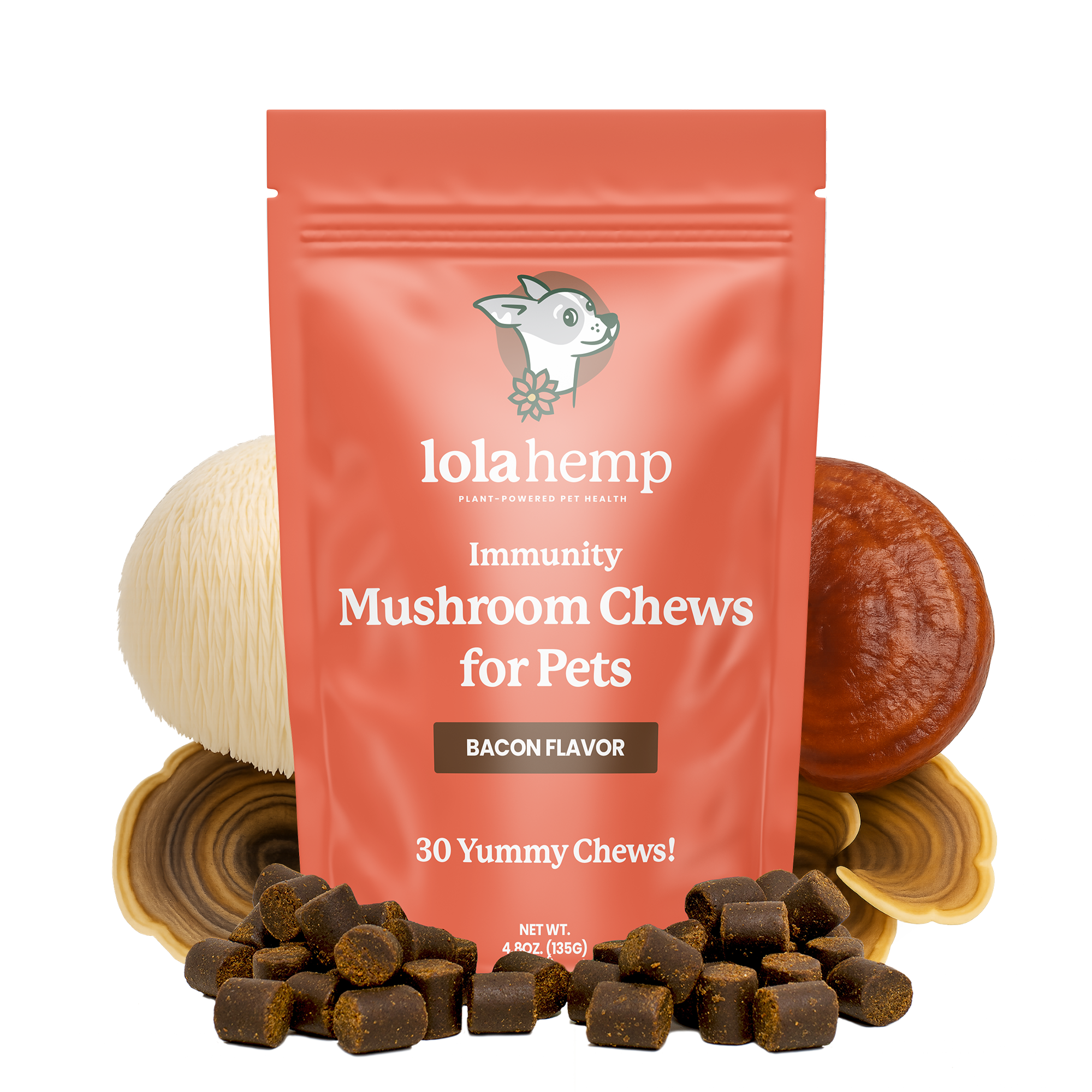
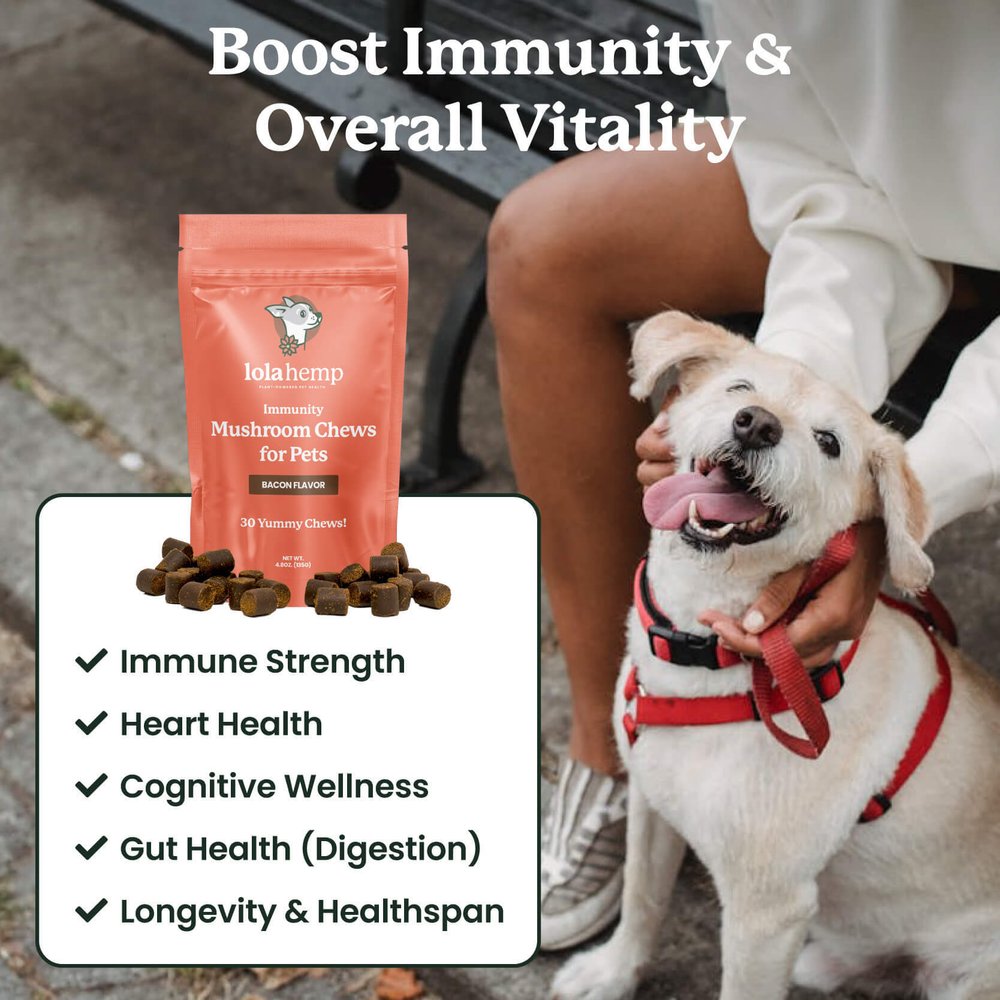
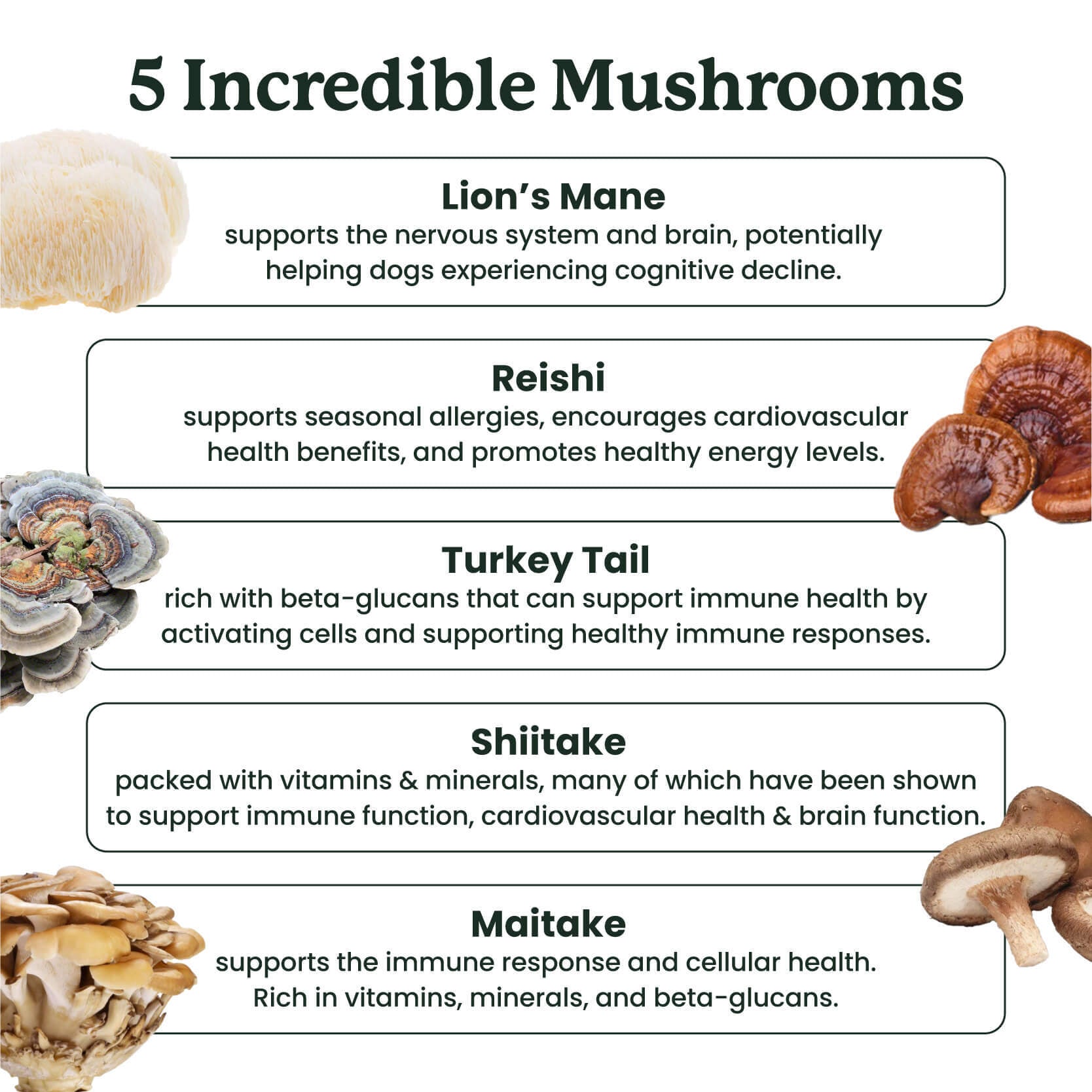
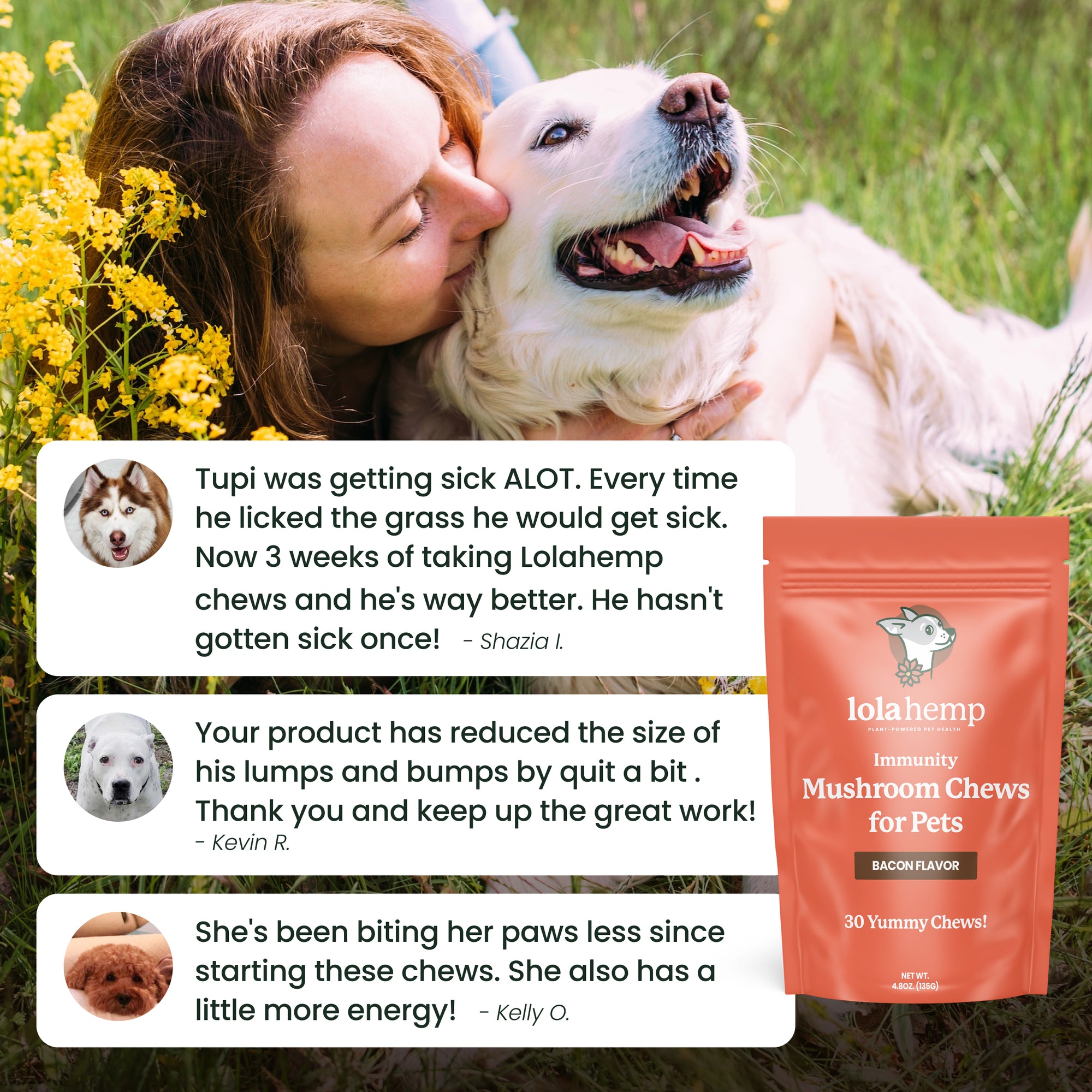
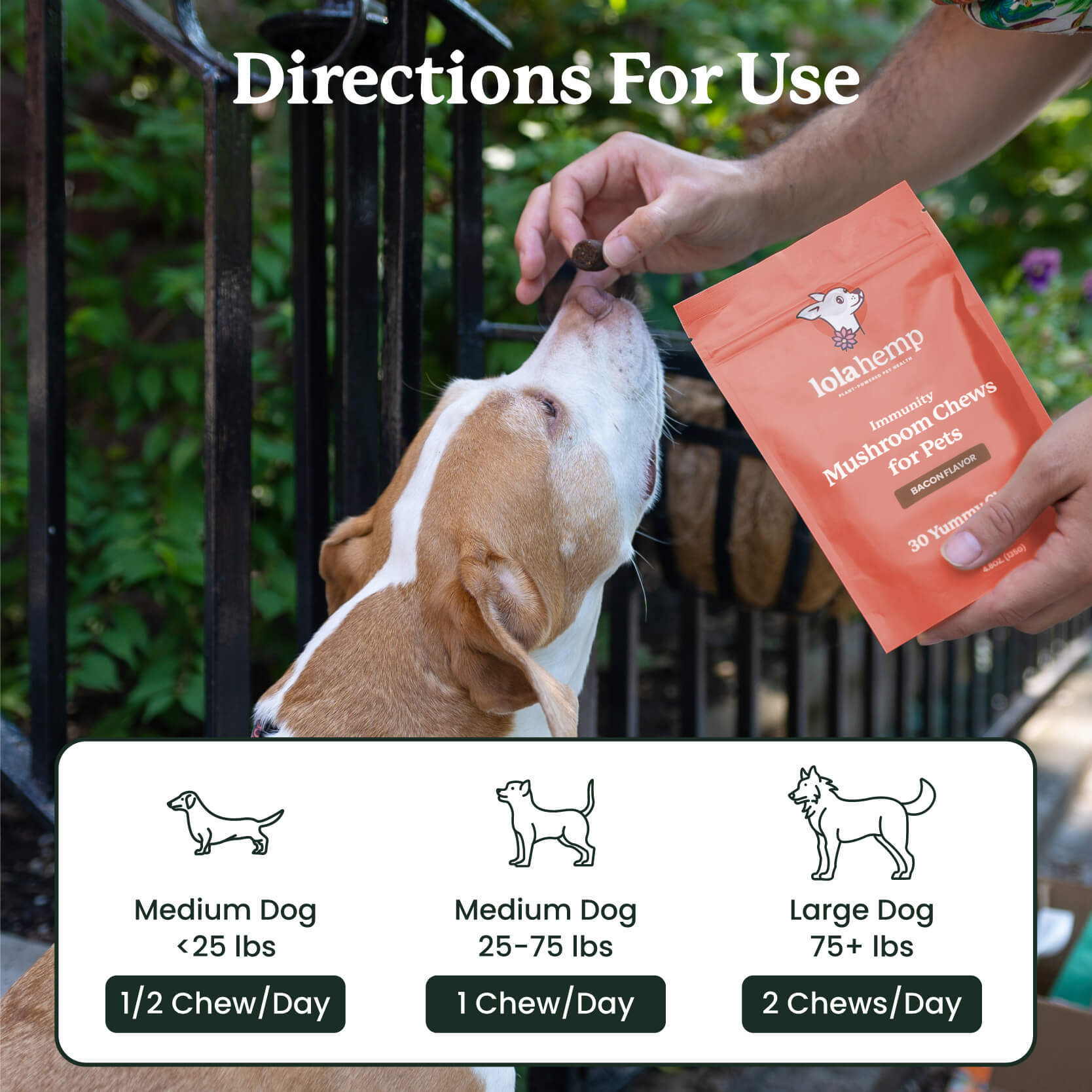
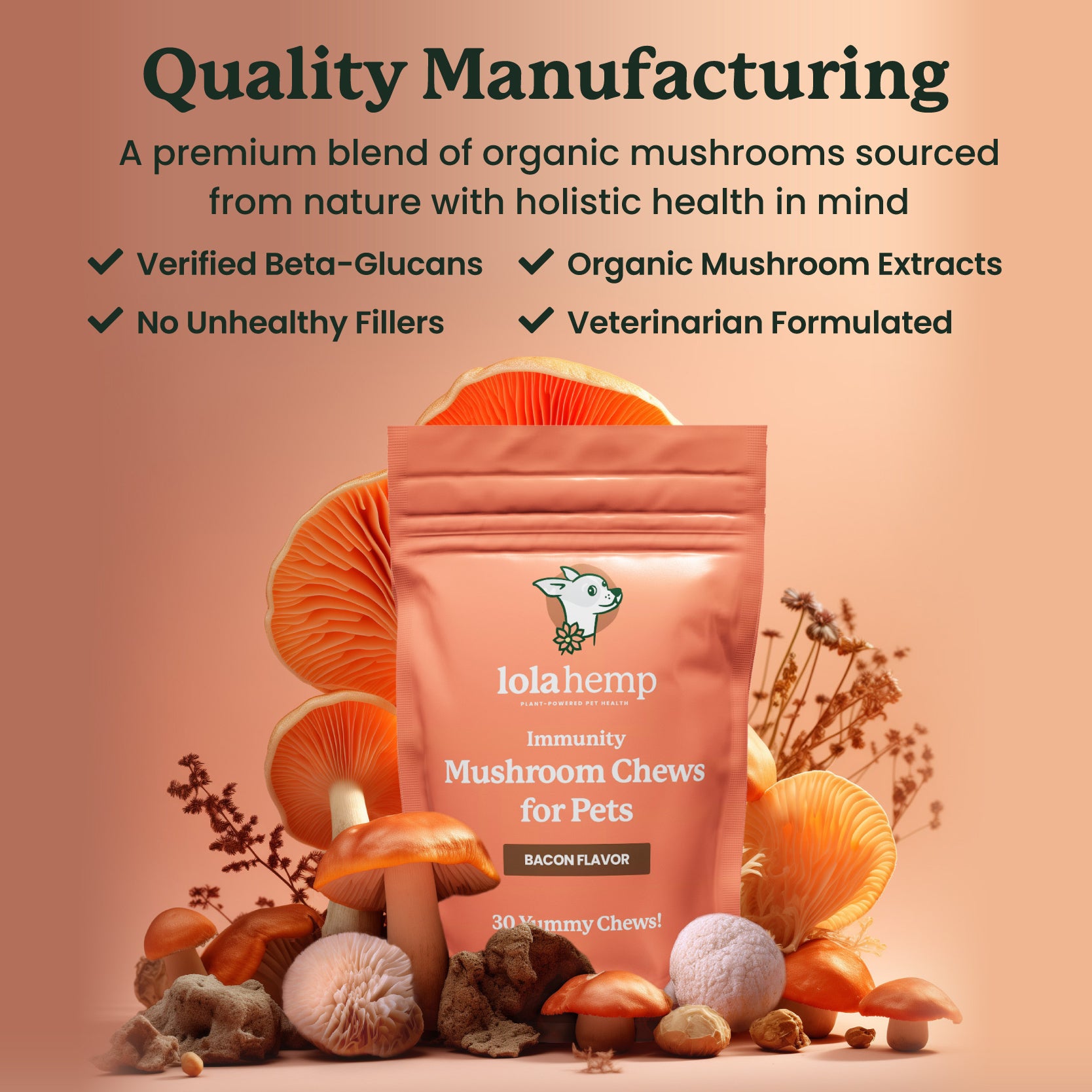



Comment
Love all the info on the immune system, and dogs helping dogs. They are always amazing 😍